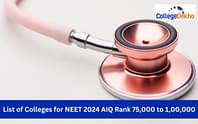- Eligibility Criteria for Engineering Design Courses
- Entrance Exams for Engineering Design Courses
- Fees for Engineering Design Courses
- Engineering Design Courses Curriculum
- Engineering Design Courses Syllabus
- Online Engineering Design Courses and Certificates
- Engineering Design Courses Scope
- Top Recruiters in Engineering Design Field
- Average Salary of Engineering Design Professionals
- Upcoming Trends in Engineering Design Field
- Skillset Required for Engineering Design Courses

Engineering Design Courses:
Engineering design is a process that combines scientific principles and creative problem-solving techniques to develop innovative solutions for various engineering system designing. In engineering design, professionals analyse requirements, constraints, and user needs to create efficient and practical designs for products, systems, or structures. The goal of an engineering design course is to prepare students to become effective engineering designers. This means that students will learn how to identify problems, develop solutions, and communicate their ideas effectively. They will also learn how to use CAD software and other engineering tools.
An engineering design course is a curriculum that teaches students the principles and practices of engineering design. The course typically covers topics such as the engineering design process, problem-solving techniques, creativity and innovation, computer-aided design (CAD), manufacturing processes, materials science, testing, and evaluation. Engineering design courses are typically offered at the undergraduate and graduate levels. They can be found in a variety of engineering disciplines, including mechanical engineering, electrical engineering, civil engineering, and industrial engineering.
Also Read:
BTech Course List: BTech Top Courses List
Engineering design courses can be a valuable addition to a student's educational portfolio. They can help students develop the skills and knowledge they need to succeed in a career in engineering. When searching for engineering design courses, it's essential to find programs that offer a robust curriculum focused on engineering design principles and applications. Look for courses that emphasize hands-on projects, case studies, and real-world examples to enhance your practical skills.
Eligibility Criteria for Engineering Design Courses
Every college might have specific requirements that candidates must meet to be eligible for admission to Engineering Design Courses. The general eligibility criteria for Engineering Design UG and PG courses are as follows:
Eligibility for Engineering Design UG Courses
- Completion of 10+2 from a reputable board is necessary.
- The candidate must have pursued the science stream (including physics, chemistry, and mathematics) and achieved a minimum score of 60% in their most recent qualifying examinations.
- Candidates must qualify for entrance tests conducted by the college/university or national/state-level entrance exams such as JEE Main and BITSAT.
Eligibility for Engineering Design PG Courses
- Possession of a B.E. or B.Tech degree from a recognized university/college is mandatory.
- The candidate must have obtained a minimum score of 60% in their most recent qualifying exams.
- Some colleges also require that candidates qualify for entrance exams such as GATE.
Entrance Exams for Engineering Design Courses
To secure admission to their desired engineering design college and course, candidates are required to obtain valid scores in national level/ state level/ institute level entrance exams. Some of the top entrance exams which can help candidates get admission to Engineering Design Courses include:
Undergraduate:
JEE Main : It is a national-level exam that is conducted twice a year and allows aspiring candidates to apply for undergraduate programs such as B.Tech , B.Arch ., and B.Plan . in esteemed institutions like NITs, IIITs, and GFTIs.
BITSAT : The Birla Institute of Technology and Science Admission Test is conducted annually for candidates aiming to pursue undergraduate programs at any of the three BITS campuses located in Pilani, Hyderabad, and Goa.
COMEDK : Consortium Medical, Engineering, and Dental Entrance Examination is held each year for candidates seeking admission to undergraduate engineering and medicine courses.
Postgraduate:
GATE : The Graduate Aptitude Test in Engineering, or GATE, is an annual entrance exam for candidates pursuing postgraduate studies in engineering and science disciplines.
Fees for Engineering Design Courses
The fees for Engineering Design Courses might vary depending on the type of institute. For instance private colleges have a higher course fee as compared to government colleges. The fee details for Engineering Design Courses has been listed below:Minimum Fees | Maximum Fees | |||
|---|---|---|---|---|
Private | Government | Private | Government | |
UG | 35,000 | 15,000 | 8 Lakhs | 10.7 lakhs |
PG | 60,000 | 25,000 | 11 lakhs | 9 lakhs |
*Note: The fee structure mentioned above is indicative only and is subject to change unconditionally.
Engineering Design Courses Curriculum
The Engineering Design course curriculum is thoughtfully crafted to provide students with a strong foundation in the field. A comprehensive engineering design course covers a wide range of subjects, equipping students with the knowledge and skills needed to excel in the industry. They gain a deep understanding of engineering principles, computer-aided design (CAD) software, prototyping techniques, and project management. With a focus on practical application and hands-on projects, students gain valuable experience in design thinking, problem-solving, and collaboration. The curriculum is designed to meet industry demands, preparing students for a successful career in engineering design.
Engineering Design Courses Syllabus
Engineering Design Courses Syllabus might differ depending on the college, course duration, etc. However, given below is a list of subjects typically taught in Engineering Design Courses:
- Mathematics
- Physics
- Design thinking
- English communication
- Engineering Graphics and Visualization
- Engineering Mechanics
- Material Science and Engineering
- Computer-Aided Design (CAD)
- Engineering Design Process
- Design Thinking and Innovation
- Machine Design
- Finite Element Analysis
- Product Development and Prototyping
- Engineering Analysis and Optimization
- Manufacturing Processes and Technology
- Design for Manufacturing and Assembly
- Design for Sustainability
- Engine testing and emission measurement
- Theory of machine lab
- Design Ethics and Professional Practice
- Technical Communication and Documentation
- Design Project or Capstone Design Course
Online Engineering Design Courses and Certificates
The list of courses and certificates under Engineering Design courses are listed below along with the respective eligibility criteria for each:S.No | Course/ Certificate Name | Eligibility |
|---|---|---|
1 | Design Engineer Master's Certification Program | UG degree in Aerospace, Mechanical, or Automobile Engineering |
2 | Post Graduate Program in CAD | B.Tech/B.E. from recognized university |
3 | Certified Engineering Design Professional | Already working professionals (with bachelors/masters) looking to upskill |
4 | Fundamental Skills in Engineering Design | Already working professionals (with bachelors/masters) looking to upskill |
5 | Using Rapid Prototyping in the Engineering Design Process | UG degree in Aerospace, Mechanical, or Automobile Engineering |
6 | Ideation: The First Step in Engineering Design | B.Tech/B.E. from recognized university |
Engineering Design Courses Scope
India has a thriving engineering sector with diverse industries such as automotive, aerospace, manufacturing, infrastructure, and technology. These industries offer numerous opportunities for engineering design professionals. Roles such as Design Engineer, Product Designer, CAD Engineer, Industrial Designer, Mechanical Engineer, Civil Engineer, Electrical Engineer, and Manufacturing Engineer are in high demand in India. The country has a strong presence of engineering companies, multinational corporations, and research and development centers that actively recruit engineering design graduates. While the availability of specific job roles may vary based on factors such as industry demand, geographical location, and individual qualifications, Indian students pursuing engineering design have a wide range of opportunities to explore and build successful careers in this field.Career Options After Engineering Design Courses
Career options for Engineering Design Courses for Indian students are vast and promising. With India emerging as a global hub for engineering and technology, there is a growing demand for skilled design engineers in various industries. Pursuing engineering design courses equips Indian students with the knowledge and expertise to tackle complex engineering challenges effectively.
Here are some career options available to candidates who after pursuing Engineering Design Courses:
| Job Profiles | Roles & Responsibilities |
|---|---|
| Automotive Design Engineer | An Automotive Design Engineer is accountable for the creation and testing of a vehicle through the design and manufacturing process. |
| Production Engineer | A Production Engineer's role involves overseeing the production of goods at industrial facilities, factories, and plants. |
| Automotive Ancillary Development Engineer | An Automotive Ancillary Development Engineer is responsible for handling product-related work and associated processes. |
| Production Planning and Control Engineer | The responsibilities of a Production Planning and Control Engineer include establishing and maintaining production processes within a company or factory. |
| Maintenance Engineer | Maintenance Engineers are responsible for conducting scheduled checks and maintaining vehicle records, as per the manufacturer's guidelines. |
| Vendor Development Engineer | Vendor Development Engineers work as part of a team and play a key role in sourcing new suppliers to enhance cost competitiveness for component teams. |
| Mechanical Engineer | Mechanical Engineers specialise in designing power-generating machines like electric generators, as well as appliances such as refrigerators and air conditioners. |
| Service Engineer | Service Engineers are responsible for the maintenance and repair of machinery used in large industries. They analyse and service equipment that has undergone wear and tear due to continuous use. |
| Instructional Designer | Instructional Designers identify gaps in the skills, knowledge, information, and attitudes of their target audience. They create or suggest learning techniques to bridge these gaps. |
Top Recruiters in Engineering Design Field
In the field of engineering design, there are several prominent recruiters actively seeking highly qualified and talented candidates. Upon completion of graduation or post-graduation, individuals have numerous job opportunities available to them. The following organisations are among the top recruiters in the engineering design industry:
- Design firms
- Manufacturing companies
- Cognizant
- Mahindra Engineering
- Wizcraft
- L&T construction
- Nissan Ashok Leyland
- Hyundai
- WABCO
- Mindtree
- Tech Mahindra
These recruiters offer enticing career prospects and seek individuals with the necessary skills and expertise in engineering design.
Average Salary of Engineering Design Professionals
| Job Profile | Average Salary |
|---|---|
| Automotive Design Engineer | Rs 5-6 LPA |
| Production Engineer at Automobile Plants | Rs 4-5 LPA |
| Automotive Ancillary Development Engineer | Rs 3-4 LPA |
| Production Planning and Control Engineer | Rs 5-6 LPA |
| Maintenance Engineer at Automobile Dealerships | Rs 3-4 LPA |
| Vendor Development Engineer | Rs 8-10 LPA |
| Mechanical Engineer | Rs 10-12 LPA |
| Service Engineer | Rs 2-3 LPA |
| Instructional Designer | Rs 5-6 LPA |
Upcoming Trends in Engineering Design Field
The field of engineering design is constantly evolving, with several upcoming trends shaping its future. Here are some noteworthy Engineering Design trends to keep an eye on:
- Digital Twins: An emerging trend in engineering design that involves creating virtual replicas of physical products or systems. By simulating real-time data and behaviour, digital twins enable engineers to optimise performance, predict maintenance needs, and facilitate better design iterations.
- Artificial Intelligence: Artificial intelligence (AI) is revolutionising engineering design by leveraging algorithms and machine learning. AI enables engineers to automate repetitive tasks, analyse large data sets, and gain intelligent insights for design optimization, predictive analytics, and efficient decision-making.
- Generative Design: Generative design, another exciting trend in engineering, employs algorithms to explore numerous design options based on specified constraints. By leveraging AI and computational power, generative design generates innovative solutions that meet performance criteria while optimising for factors like material usage, weight reduction, and structural integrity.
- Robotics: Robotics is transforming engineering design by enhancing automation, precision, and efficiency. Engineers are incorporating robotics into various industries, enabling tasks such as assembly, inspection, and material handling. The synergy between engineering design and robotics opens up new possibilities for intelligent systems and human-robot collaboration.
- 3D Printing: 3D printing, also known as additive manufacturing, is an increasingly popular trend in engineering design. This technology enables the creation of complex geometries and customised products by adding material layer by layer. With its potential for rapid prototyping, reduced waste, and on-demand production, 3D printing is revolutionising manufacturing and design processes.
By embracing these upcoming trends in engineering design, aspirants can unlock new avenues for innovation, efficiency, and optimization. Incorporating digital twins, AI, generative design, robotics, and 3D printing into engineering practices will help shape the future of design and drive advancements across various industries.
Skillset Required for Engineering Design Courses
The required skillset for engineering design plays a crucial role in the success of professionals pursuing engineering design courses. Some of the top skill set required for Engineering Design Courses are as follows:
- Technical Expertise: Proficiency in engineering principles, materials science, mechanics, and manufacturing processes.
- Creativity : Ability to think outside the box, innovate, and generate unique design solutions.
- Critical Thinking: Aptitude for analyzing problems, evaluating options, and making informed design decisions.
- Problem-Solving: Skill in identifying and resolving complex design challenges using systematic approaches.
- Project Management: Ability to plan, organize, and execute design projects, ensuring timely completion and adherence to specifications.
- Communication Skills: Effective communication, both verbal and written, to convey design ideas and collaborate with team members and stakeholders.
By acquiring and honing these essential skill sets through engineering design courses, individuals can enhance their prospects for success in the field of engineering design.
Related Links
That is all related to Engineering Design Courses. For more updates on Engineering courses, stay tuned to Collegedekho.
Written by Shivakshi Huria
Are you feeling lost and unsure about what career path to take after completing 12th standard?
Say goodbye to confusion and hello to a bright future!

JEE Main Previous Year Question Paper
Was this article helpful?



















Similar Articles
KCET 2025 Chemistry Syllabus - Chapter-Wise Topics, Weightage
KCET 2025 Mathematics Syllabus - Important Topics, PDF and Weightage
KCET 2025 OMR Sheet – Sample (PDF Download), Instructions, Carbon Copy
KCET Login 2025 - User ID, Application Number, Password, Steps to Retrieve
MHT CET 2025 - Admit Card (April 5), Syllabus, Mock Test (Released), Exam Pattern, Preparation Tips, Results, Cutoff
MHT CET 2025 Syllabus (Released): Check Subject Wise, Download PDF